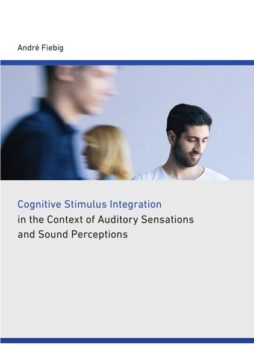In everyday life human beings permanently face circumstances, where they have to make decisions based on bounded affective episodes. But, how do humans retrospectively form overall assessments of complex sensational profiles? Do they base their decisions on some unifying principles or do they possess a variety of cognitive schemas?
Experiments were performed based on non-deceptive obfuscation of the true experimental objectives, where participants assessed retrospectively the total amount of perception of synthetic and natural sound episodes of varying durations. To avoid response biases on overall assessments, online-evaluations were not requested and psychoacoustic profiles as proxies of instantaneous experiences were determined for analysis.
The experimental outcomes provided insight into cognitive stimulus integration, but were not conclusive indicating the susceptibility of cognitive stimulus integration to contextual circumstances. It was confirmed that people rely on key moments of episodes to form overall assessments, but a firm tendency regarding a dissociation of retrospective evaluations from immediate experience was not observed. Consequently, simple cognitive models, like peak-and-end model, or peak related indicators, as proposed in DIN 45631/A1 for overall loudness, were not able to exhaustively explain the observed empirical variances. There was little evidence that humans neglect periods of a noise episode and results indicated a great importance of background magnitudes regarding overall assessments of different auditory sensations. Consequently, metrics must combine information about averaged level of momentary experiences and peak experiences to predict reliably overall assessments of time variant sound perceptions.
- Veröffentlicht am Donnerstag 3. Dezember 2015 von epubli
- ISBN: 9783737579575
- 288 Seiten
- Genre: Psychologie, Sachbücher
